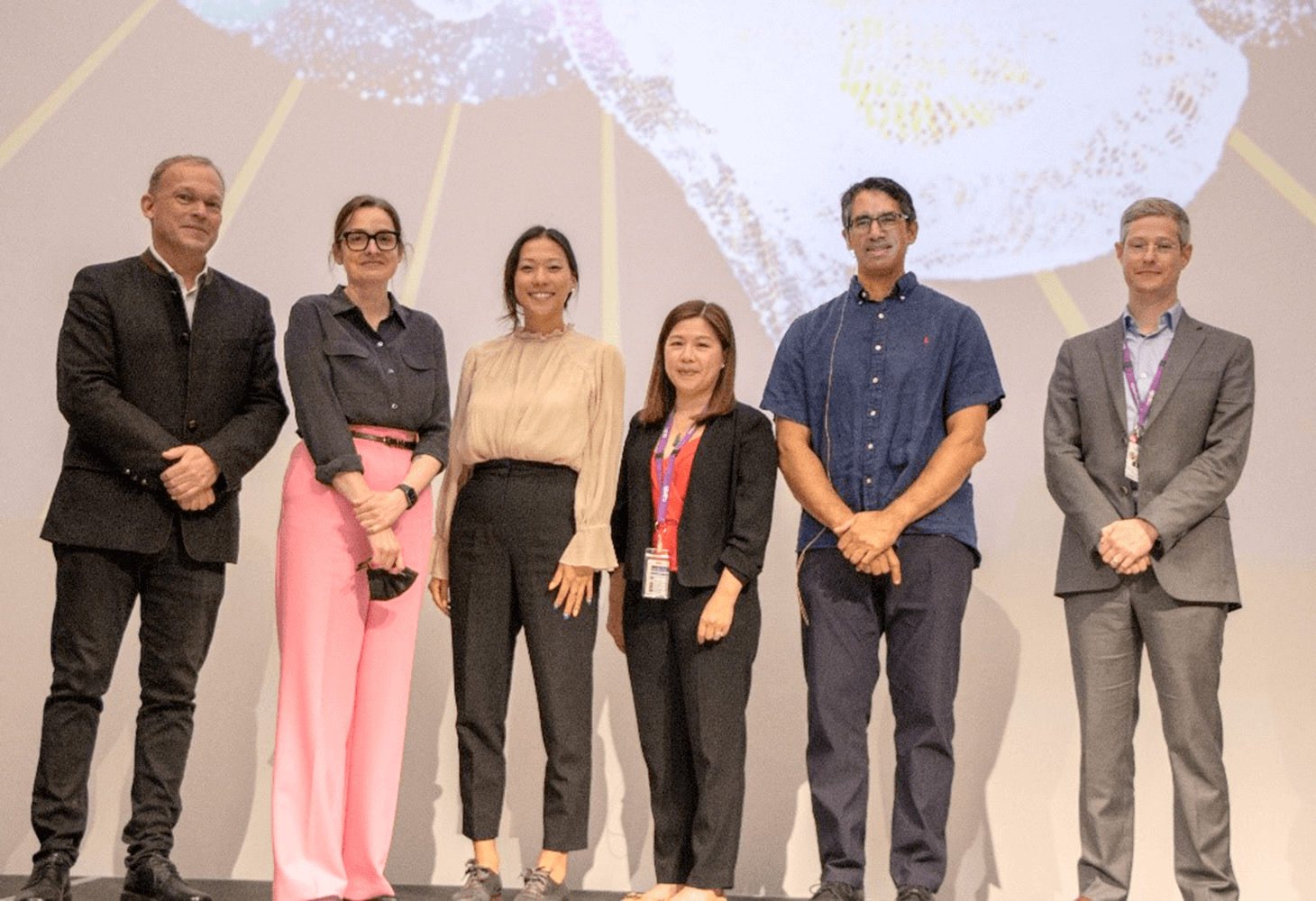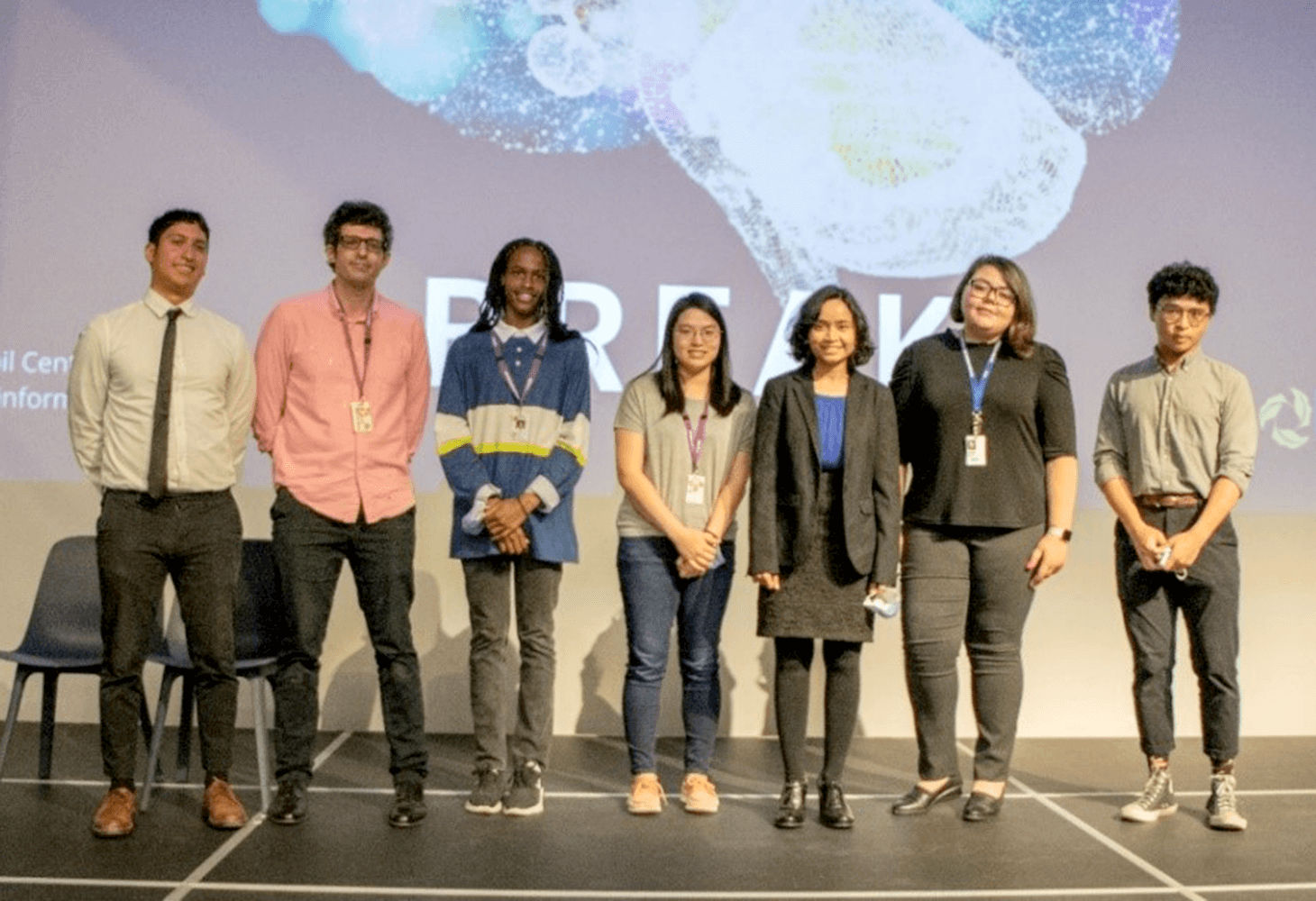The Krembil2 Retreat was held on June 2, 2022, in Toronto and highlighted current and future collaboration opportunities between the Krembil Centre for Neuroinformatics (KCNI) at CAMH and the Krembil Brain Institute (KBI) at UHN.
During an initial meeting leadership from both CAMH and UHN drafted a proposal to develop a Collaborative Research Agreement between the KBI and KCNI for the conduct of collaborative clinical exploratory research at the intersection of neurology, neurodegenerative disease and mental illness. This agreement would focus on streamlining joint activities to simplify collaborative research by leveraging specialized resources and capabilities between the two Centres.
Researchers, clinicians, and trainees from CAMH and UHN then came together on June 2nd, in person and virtually, to brainstorm and explore strategies to build new bridges to accelerate discoveries, support existing collaborations, and develop a shared infrastructure for data management and analysis that bridge mental health and brain disorders.
The morning started with presentations from current collaborators at CAMH and UHN and highlighted the successes of the work between the two organizations.
“As we understand things at the very fundamental level, all the silos come down and this effort is the beginning of that,” shared Dr. Taufik Valiante, Director of the Surgical Epilepsy Program at the Krembil Neuroscience Centre.
KCNI has become recognized as a global leader in neuroinformatics in the three short years since its inauguration and is taking a unique approach to collaboration in this space.
“Two great organizations under one great family, have come together to advance the transdisciplinary nature of research and to help make Toronto a magnet and beacon of brain sciences and data,” said Dr. Kevin Smith, President and CEO of the University Health Network.

In the spirit of institutional collaboration, participants discussed the work that is well underway to leverage and expand the CAMH BrainHealth Databank, an initiative that brings together data from patient’s electronic health record and clinical assessment databases. This will allow researchers to accelerate new diagnostic tools, treatments and technologies in brain sciences.
During the retreat, researchers also reiterated that the brain is just one part of the equation and must not be viewed in isolation from the rest of the body. By adjusting data collection methods with this important fact in mind, researchers will hone in on the opportunity to collect and share more high-quality data and use this technology to create a standardization of care.
The Krembil2 Retreat’s main objective was to facilitate connections across all levels of the organization, from executives to researchers and clinicians to trainees. During the retreat, trainees from both organizations presented their research, offering a valuable opportunity to promote joint-institutional mentorship, knowledge transfer exchange and cross-institutional collaboration.
“By bringing the trainees at KCNI and KBI together, we will form a new, larger trainee community with diverse interests, perspectives, motivations, and passions. We will form and cultivate new personal relationships with some who are on paths similar to our own, and others headed in different directions,” explained Postdoctoral Fellow, Stuart Matan-Lithwick. “This will serve as a rare opportunity to build a new strong trainee community together. With this community as our foundation, and our collective health and wellness as our top priority, we will have the resources to make our work both personal and impactful.”

During the brainstorming session, led by Dr. Elizabeth Wilcox, attendees shared their perspectives and concerns about how to streamline processes, enhance training and improve tools to allow them to maximize their impact now and into the future. Ideas discussed included empowering trainees with tools to build their own workshops, encouraging trainees to learn more about other projects and associated collaboration opportunities, creating a centralized resource that encourages knowledge transfer and facilitating additional co-supervision opportunities for trainees.
“This event is a catalyst to collaboration and today is the start of a long relationship which all stems from the students. This relationship creates an environment that brings us together to ultimately make this collaboration more realistic,” said Dr. Gelareh Zadeh, Director of the Krembil Brain Institute.
If you have any questions about the Krembil2 Retreat or KCNI in general, please email krembil.centre@camh.ca.